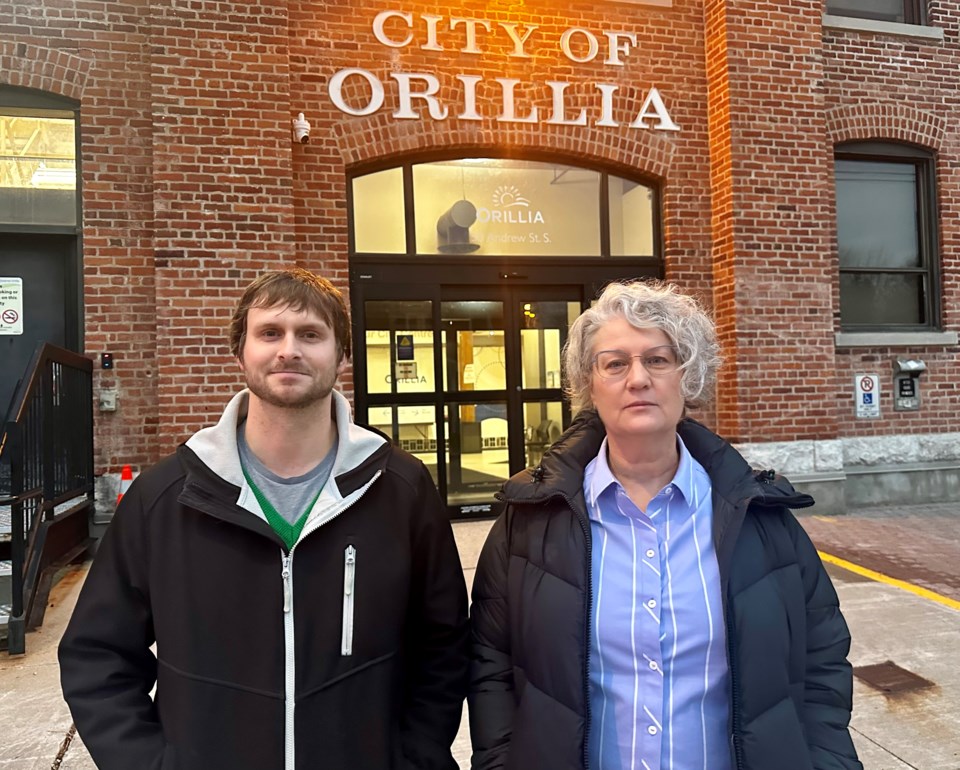Two Orillia councillors are among dozens of municipal politicians calling on the province to refrain from using the notwithstanding clause to deal with homeless encampments in communities around Ontario.
Councillors Janet-Lynne Durnford and Jay Fallis are among 41 signatories to a letter — with representatives from 23 municipalities around the province — requesting “evidence-based solutions to homelessness” and to respect rights enshrined in the Canadian Charter of Rights and Freedoms.
“For me, what it boils down to is we have to treat everyone like human beings, not just those that actually live in homes,” Fallis said. “Everyone's a human being, and we need to treat one another as we treat ourselves.”
The call comes in response to a letter to Premier Doug Ford, signed by 13 Ontario mayors in recent weeks, asking him to consider using the notwithstanding clause to deal with the growing issue of homeless encampments in cities around the province.
The notwithstanding clause gives provincial legislature or parliament the ability to override portions of the Charter for up to five years.
“I'm opposed to any measure where we're going to violate people's human rights,” Durnford said. “One of the requests in the mayors' letter is to be able to arrest and incarcerate people for repeated acts of trespass, but to be clear, often there's nowhere for people to go, so if the shelters are full and people are unhoused, there is nowhere for them to legally exist as an unhoused person, and that is perceived as an act of trespass, and so you're just criminalizing homelessness.”
Citing a 2023 court case in the Region of Waterloo, where the region’s request to evict a homeless encampment was denied due to a lack of available shelter space, Fallis noted there needs “to be an alternative location for (people) to go” if evicted from an encampment.
“This would just kill that. It would basically make it so that there does not need to be an alternative space,” he said. “As it stands, the system is broken. It's tragically broken, but this would make it even more broken.”
In terms of addressing the homelessness crisis, Durnford said the mayors’ call would only succeed in making the issue less visible.
“If you think that the problem is that you're seeing more visible poverty and more people living on the streets — it might solve that problem,” she said. “It doesn't solve the actual problem, which is that there is an affordability crisis, there's a toxic drug crisis, and there's housing crisis, and it doesn't solve those problems. It masks them.”
Beyond using the notwithstanding clause to “move the homeless along,” as Premier Ford recently said, Durnford also expressed concern about the possibility of mandatory addiction treatment.
“The other thing they're asking for the notwithstanding clause for is to put people into mandatory addiction treatment, and I think that is outrageous because right now addiction treatment is almost impossible to access,” she said.
“If you can get detox, then it's months before you can get into treatment, and there's no support in the interim, so we're basically incarcerating people in some sort of residential treatment program because they're not accessing a service that doesn't actually exist.”
With concern that the mayors’ letter would simply “move (homeless people) around,” Fallis encouraged action that addresses “the root cause of what’s happening here.”
“The letter that we signed really talks about the need for action that is research-based, that really goes down to we need to provide housing, affordable housing, accessible housing to these individuals,” he said. “We need to provide services such as mental health support, but also addictions treatment as well, and it's complicated.”



